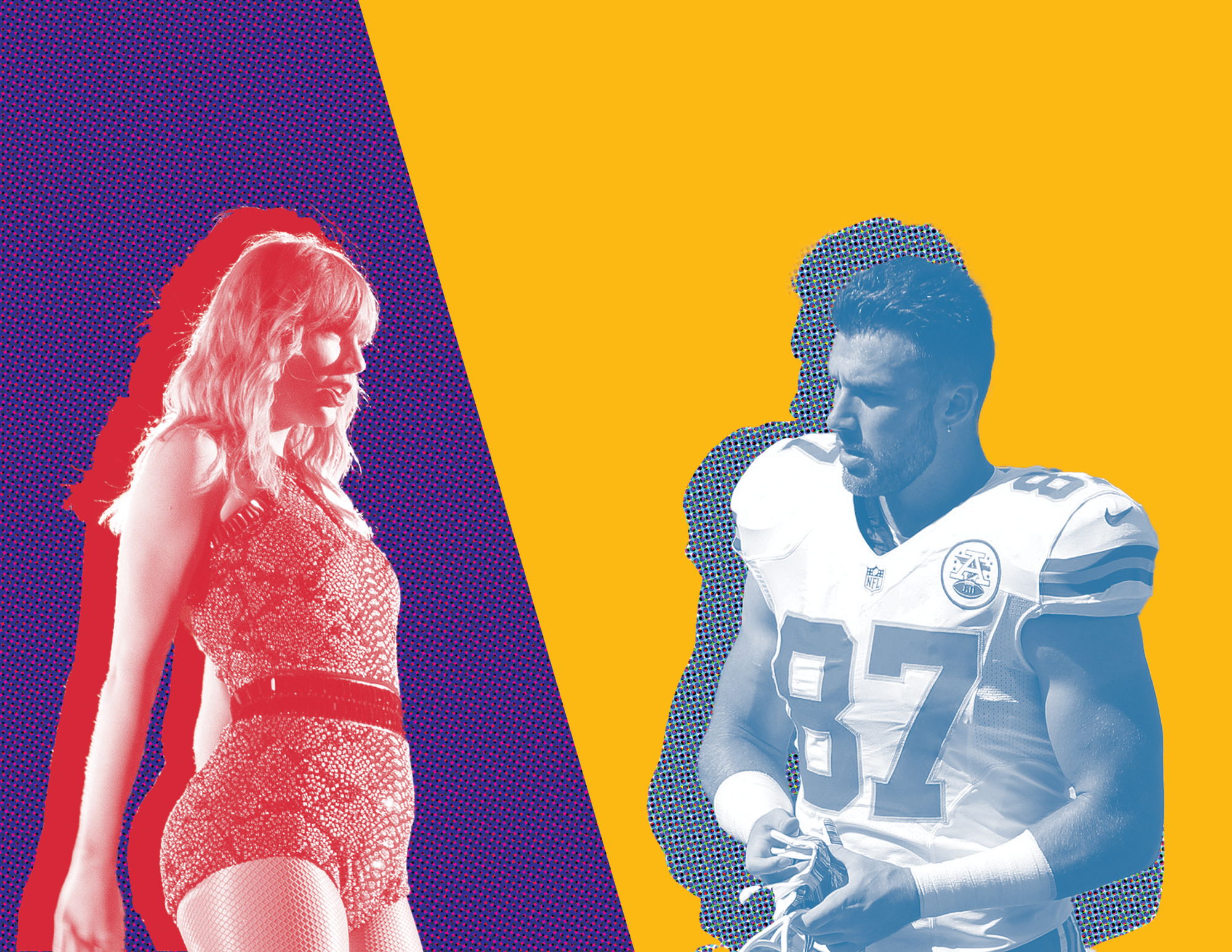
Last November, Professor of Psychology Steven Fein found inspiration for his research on the social media frenzy over the relationship between pop star Taylor Swift and football player Travis Kelce. He decided to investigate the topic in-depth, organizing a data collection project on the celebrity couple. Fein suggested the idea to his students in PSYC 201: “Experimentation and Statistics,” who enthusiastically took it on. From there, the research consisted of two studies, an experiment and a survey, that explored the factors at play in how football viewers perceive Swift.
“The intention behind that research was to give my students something really interesting and foreign for them to apply what they were learning in class,” Fein told the Record.
In the fall, Fein and his students were interested in studying the varying forces driving such widespread media attention on Taylor Swift and her affiliation with the National Football League (NFL). They collected a random sample of 500 people nationwide using Amazon Mechanical Turk, a crowdsourcing platform where users can get paid for partaking in various surveys. “I wanted to get a broad sample of people who ran the whole spectrum in terms of political ideology, race, gender, everything, so it wouldn’t just be people from around here who would skew it a particular way,” Fein said.
The participants were randomly assigned to one of three study groups: one control and two treatment groups. All subjects were presented with a display of sports images and asked to rate whether they liked or disliked the NFL. While the control group scrolled through exclusively football photos, the other two conditions saw either three images of Swift at a football game or three images of football player Colin Kaepernick kneeling on the sideline.
“I wanted to have another condition to compare [the Taylor Swift condition] against,” Fein said. Starting in 2016, Kaepernick’s on-field protests against racial injustice and police brutality also sparked controversy among the NFL and its viewers. “Again, a lot of people, particularly conservatives, were very upset by those kinds of things, and others think it’s a great prosocial thing to do,” Fein added.
Fein found that there was a statistically significant difference in reaction between the treatment conditions and the control condition among politically conservative study participants. Under both conditions, self-identified conservative participants rated their enjoyment of the NFL lower. Among liberal participants, the treatment conditions did not affect their ratings of the NFL.
“It doesn’t seem like it’s just a fringe group of people who have this strong reaction with a lot of our subjects, the majority of whom were conservative,” Fein said. “A majority of those [subjects] really reacted negatively to [the two treatment conditions], even though it’s just a tiny fraction of the stuff that they saw.”
After the fall class’s experiment and findings, Fein brought the same research topic into his “Experimentation and Statistics” spring course, in which he conducted a survey the week before the 2024 Super Bowl. The survey’s questions touched upon a variety of topics, from evaluating people’s opinions on certain beers to weighing their recognition of popular trends. Its goal was to directly assess participants’ attitudes toward Swift and pop culture and to determine whether their individual differences such as gender, age, and political beliefs could predict their answers.
“This [study] was just basically, ‘What do you think about the coverage of Taylor Swift? Does it really bother you? Do you like it? Or are you indifferent to it?’” Fein said. “We wanted to see what individual differences predicted those attitudes.”
Along with Technical Assistant for the Psychology Department Ryan Smith, Fein designed the study using the experience management software Qualtrics and distributed it to 250 individuals using the research participant database Prolific, which ensured Fein’s study reached real subjects and not bots. The study was designed to see which factors would best predict the attitudes individuals held toward Swift.
“The factors that best correlated with negative feelings about Taylor Swift at games included political conservatism, beliefs in conspiracies, sexism, opposition to following trends in society, less time on social media, disdain for the brand Bud Light in comparison to Coors Light, and not rooting for the Kansas City Chiefs,” Fein wrote in an email to the Record. “Men were more negative about the singer’s presence than were women, but age was not a significant predictor of their attitudes.”
There was also a strong correlation between study participants disliking Swift and overestimating the time she was shown on television during football games. When asked to reflect on why football fans felt so strongly about Swift, Fein postulated that her status as a woman and one of the most successful musical artists in the world made her seem like an outsider to some football fans.
“There’s something about someone from that world coming into the world of football, and I do think there’s a real gender component to this, and the data certainly suggests sexism is a very strong predictor,” Fein wrote. “[The] more sexist people were, according to the measures that we used, the more they were upset by the Taylor Swift stuff on football. So [there is] this idea of, ‘She’s not a real football fan, she’s not one of us.’”
In both studies, Fein said he intended to allow his students to take their learning and apply it to the real world. He hoped it would allow them to better understand how social media impacts public opinion today.








